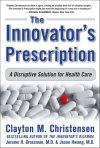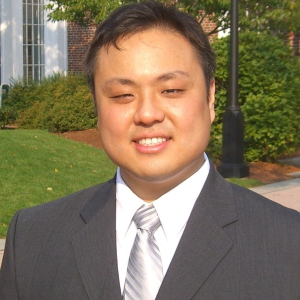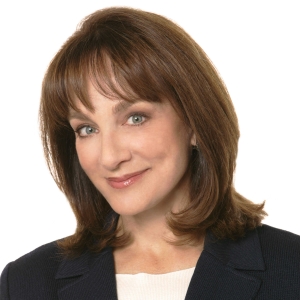Jason Hwang Speaker Biography
Authority on Innovative Healthcare Reform and Co-Author of “The Innovator’s Prescription: A Disruptive Solution for Health Care”
Jason Hwang, M.D., M.B.A., is a distinguished healthcare futurist and a practicing internal medicine physician. Furthermore, he co-founded and serves as the chief medical officer of Icebreaker Health (Lemonaid Health). This innovative California-based healthcare startup is revolutionizing primary care through smartphone app-based service delivery. As a dynamic speaker on healthcare innovation, Dr. Hwang masterfully integrates his medical background with his business acumen and insights into technological advancements. Consequently, he offers audiences a compelling view of the exciting innovations shaping the future of healthcare. Moreover, he provides a glimpse into the transformative possibilities on the horizon within the medical industry. As a recognized futurist in healthcare, Dr. Hwang offers invaluable perspectives on the evolving healthcare landscape.
Innosight Institute and Scholarly Contributions
Previously, Dr. Hwang co-founded and served as the Executive Director of Healthcare at Innosight Institute. Notably, this influential non-profit social innovation think tank, now known as the Clayton Christensen Institute for Disruptive Innovation, actively drives the reinvention of the healthcare system. Its mission is to enhance accessibility and user-friendliness within medical care. Furthermore, Dr. Hwang co-authored the seminal work, The Innovator’s Prescription: A Disruptive Solution for Healthcare, alongside Professor Clayton M. Christensen of Harvard Business School and the late Jerome H. Grossman of Harvard Kennedy School of Government. This collaboration underscores his significant contributions to shaping the discourse on healthcare’s future. As a thought leader and healthcare futurist, his work at the institute has been instrumental in promoting disruptive innovation in medicine.
Insights on Disruptive Innovation in Medicine
Dr. Jason Hwang is a compelling speaker who shares his groundbreaking research into disruptive innovation. Indeed, this transformative approach has revolutionized numerous industries. Consequently, Dr. Hwang posits that it holds immense potential for reshaping healthcare. Moreover, he elucidates how novel medical technologies have propelled the shift from intuitive to precision medicine. This transition allows for the precise diagnosis of previously complex disorders. Furthermore, it enables treatment with predictably effective therapies. His expertise in healthcare trends and medical innovation makes him a sought-after voice. As a healthcare futurist, Dr. Hwang expertly articulates the profound impact of disruptive technologies in healthcare.
Driving Healthcare Innovation and Reform
When these cutting-edge innovations are seamlessly integrated into new business systems, they will spearhead crucial reforms within the healthcare industry. Consequently, they offer viable solutions to the fundamental challenges currently plaguing the nation’s healthcare system. These critical issues include escalating costs and the persistent lack of widespread access to quality medical care. As a healthcare innovation speaker, Dr. Hwang provides insightful perspectives on how technology and new models of care can address these systemic problems. His focus on the future of medicine and healthcare solutions makes him a valuable resource for understanding and navigating the evolving medical landscape.
Academic and Professional Background
Dr. Hwang’s commitment to medical excellence is evident in his academic and professional journey. For instance, he served as chief resident and clinical instructor at the University of California, Irvine. During this time, he received multiple accolades for his exceptional clinical work. Additionally, he has served as a dedicated clinician with the Southern California Kaiser Permanente Medical Group and the Department of Veterans Affairs Medical Center in Long Beach, California. Dr. Hwang’s strong educational foundation includes a B.S. and M.D. from the University of Michigan. Furthermore, he earned his M.B.A. from Harvard Business School. This robust background informs his insightful perspectives as a leading healthcare futurist.
Jason Hwang Speaking Topics
The Innovator’s Prescription: How Disruptive Innovation Will Transform Health Care
In the absence of the ability to precisely define a disease, the care of patients is best undertaken by highly skilled professionals, whose intuition is based on deep experience. This describes the history of health care, and we call this the practice of intuitive medicine. Molecular biology holds the promise of transforming medical practice into a new phase that we call precision medicine. It promises to dramatically reduce cost and increase the predictable effectiveness of therapy.
Disrupting U.S. Health Care
When we think of “quality” health care, we generally assume that more expertise is always preferred -- doctors must be better than nurses, specialists must be better than primary care doctors, and hospitals and clinics must be better than virtual interactions. This mentality, in part, has left us with a health care system that is unaffordable, inconvenient and largely broken. But if we were to apply the principles of disruptive innovation to our collapsing health care system—by using advances in technology to help nurses and primary care physicians to do more sophisticated work—a costly, hard-to-schedule trip to the doctor may become increasingly rare. Disruptive innovations like direct-to-consumer diagnostics, patient-controlled electronic health records, telemedicine, and hospital-at-home models of care have the potential to create transformative change in the health care industry, argues physician Jason Hwang. Such models of care also have the potential to be superior options with distinct advantages for paving the way toward more accessible, affordable and quality health care.
Full Potential: Why and How Retail Clinics Must Disrupt… Again
Anointed as the disruptive model for care delivery when they first entered the marketplace, retail clinics have fallen significantly short of both their promise and potential. In fact, says Jason Hwang, they surprisingly did not follow the path of true disruption. Most disruptions start by serving the low end of consumers, but retail clinics tend to attract people who already have insurance and access to care. The retail clinic model has become one of convenience rather than one of need, missing an important opportunity to serve the poor and underinsured. To thrive and move beyond their current plateau, retail clinics must figure out how to self-disrupt, says Hwang – and he believes a combination of technology and nurses may be a big part of the solution. He discusses his views on how retails clinics can capitalize on mobile health technology and rely more on the expertise of nurses to further push the boundaries of where and to whom retail clinics deliver care, expanding their menu of services while providing quality care to those who need it most.
Realizing the Potential - The Next Generation of Telemedicine
Most health care takes place inside brick-and-mortar walls. Physician-patient visits are largely unstructured, 15-minute "conversations" with little engagement - highly variable experiences with highly variable outcomes that are also neither scalable nor efficient in an era of rising costs and workforce shortages. The advent of telemedicine brought high expectations of disruption, but physicians continue to adhere to the same care delivery model - just on a video screen. A new model of telemedicine offers the best potential to introduce enormous efficiency, standardizing workflows and care processes, and provide care that is not just affordable and convenient, but also high in quality and scalable. Dr. Jason Hwang is a pioneer of this next generation of telemedicine. He delves deep into the automated, software-based framework, and discusses proven outcomes, drawn from his own experiences. He also shares his vision for the future of telemedicine in which new models of care will arise in often unexpected ways, as new caregivers and care sites enabled by the digital tools that are being developed today.
Will Smartphones Replace Your Doctor? The Impact of Digital Health
Our population is living longer. There continues to be a shortage of nurses and primary care doctors. Provisions of the Affordable Care Act -- guaranteed issue and mandated coverage of many preventative services – have taken effect. The demand for affordable, quality health care is growing, and there is no way to fulfill it through existing models of care where every problem requires you to see a doctor, in person. Jason Hwang believes highly scalable digital health technologies are poised to vastly improve health care – for everyone. Drawing from experiences with his own telehealth start-up PolkaDoc, as well as his work with the X-PRIZE Foundation, Hwang talks about technology’s sophisticated yet affordable solutions that already exist – from ultrasounds and EKGs to diagnosing of ear infections or rashes, all via smartphones – and discusses the potential that simple digital innovations like text messaging, avatars and apps have for helping patients get better care, earlier and more efficiently. The value of digital health to transform health care is tremendous.
How Technology is Changing Health Care - for Good
Traditional health care is simply not set up to evolve alongside rapidly advancing technologies. Consider the influx of health data from wearable fitness devices and home diagnostic equipment. Doctors either don't know what do with the data, or they can't keep up with the data deluge. What's needed is a software solution that can absorb and process the data, supported by doctors who can then make both the sophisticated and regulatory-required decisions, says Dr. Jason Hwang. It already exists in what Dr. Hwang describes as an asynchronous, cloud-based platform. By moving more of the rote, routine care online - "automating the automatable" - it frees up capacity for doctors to focus on more complex care that genuinely requires their expertise. Dr. Hwang also explores the changing relationship between providers and patients, and explains why he believes digital health care will ultimately enhance doctor satisfaction and help eliminate doctor shortages.
Jason Hwang Books

The Innovator’s Prescription: A Disruptive Solution for Health Care
Purchase BookJason Hwang Videos
Jason Hwang Articles
Jason Hwang Speaker Testimonials
"We are very grateful for Jason’s contribution to our ‘Connect for Impact’ conference. He delivered an inspiring, thoughtful and tailor-made keynote which was highly appreciated by our guests. Besides that, Jason was also available for private conversations, reflecting on ideas, giving comments and advice!"
- | Noaber Foundation
"Your presentation on Innovation in Healthcare Service Delivery was exceptionally well received. You truly connected with our members who seek entrepreneurial leadership and are eager to advance behavioral healthcare "back home" and industry-wide. Thank you so much for an excellent presentation."
- | MHCA
"Jason is a rock star! We were so pleased with his presentation he set the tone for the rest of the conference. He is also one of the nicest people I've ever met."
- | University of Miami







